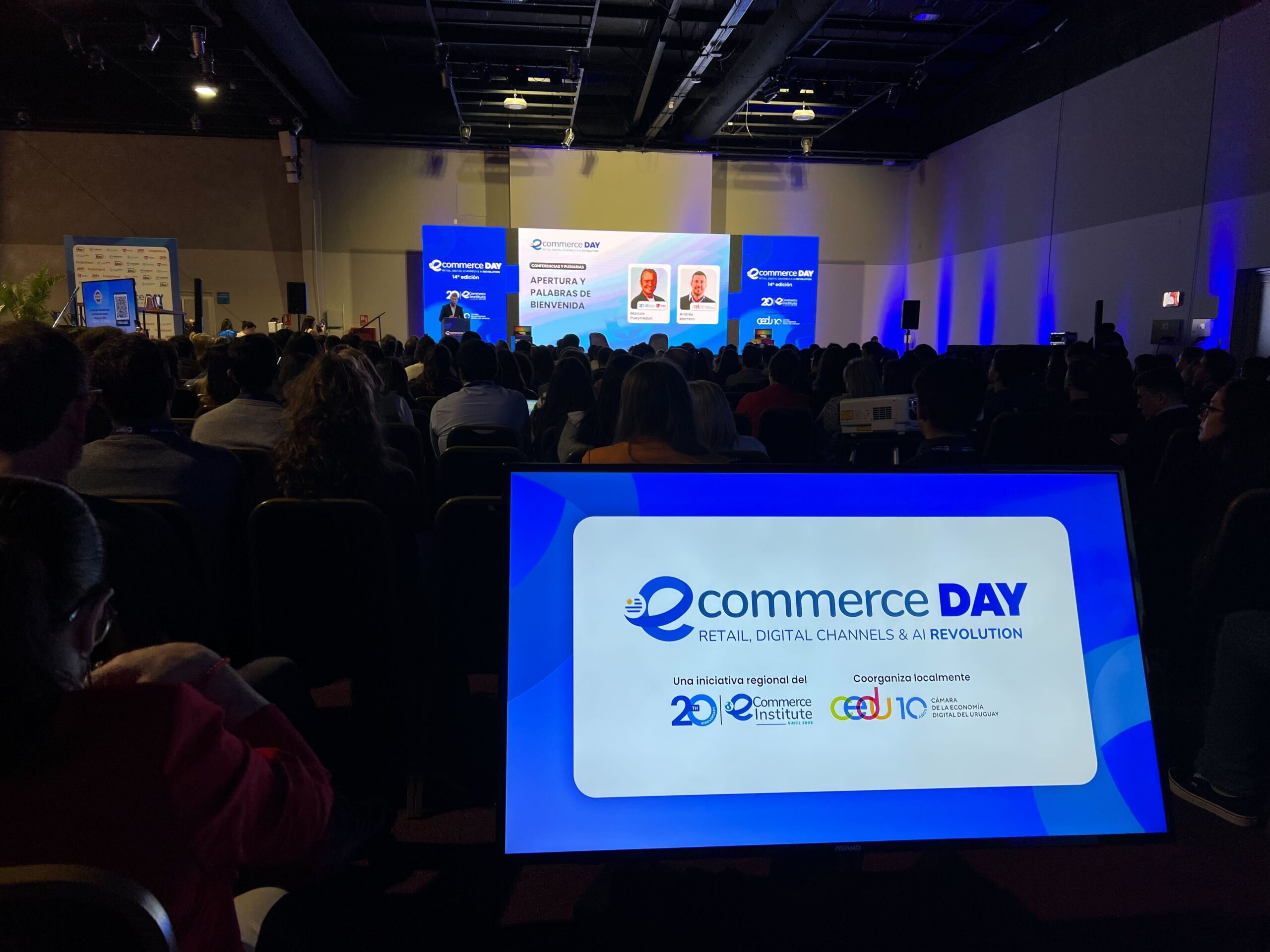On September 18, we attended eCommerce Day Uruguay 2025 — an event that proved once again that ecommerce in Latin America is not just evolving, it’s accelerating toward something fundamentally different.
This wasn’t just another tech showcase. It was a space where leaders discussed the structural challenges, strategic opportunities, and next-gen innovations shaping the future of digital commerce across the region.
At Revolt, we came back with a notebook full of insights. Here’s what stood out.
A growing market — with real-world friction
Ecommerce in Uruguay now accounts for 2.5% of national GDP, growing steadily at 35% annually. But behind the growth stats lies a more nuanced picture.
The playing field is still uneven. Small businesses struggle to compete with larger players due to limited logistics networks and lack of operational scale. Regulatory frameworks are outdated or slow to adapt to the pace of tech adoption.
Stakeholders across the board — from fintechs like DLocal, to major retailers like Tata and Farmashop — highlighted the urgent need for logistical innovation, smarter regulation, and better infrastructure if ecommerce is to scale equitably and sustainably.
AI, agent ecosystems, and the future of interfaces
AI was the headline star — but not just as a tool. It was framed as a strategic enabler for business model transformation.
One of the most provocative questions raised: Will traditional ecommerce websites even exist in a few years? The rise of intelligent agents points to a future where purchases are conversational, contextual, and fully integrated with systems like payments, logistics, and customer support.
DLocal showcased early work on voice interfaces, while Astropay is developing payment cards specifically designed for AI agents — with rules and restrictions tailored to non-human users. We also heard about the MCP protocol from Anthropic, which enables agents to browse, transact, and interact with real-world systems. It’s no longer a stretch to imagine agent ecosystems negotiating with each other in the background while users receive simplified, high-impact interfaces.
What became clear is that AI in ecommerce is moving from automation to autonomy — and the way we design for that future is about to change.
Unified commerce and real-time personalization
Unified commerce — the holy grail of seamless online/offline experience — was another major theme.
Local leaders agreed: the price of a product remains the same across channels, but promotions, availability, and user experiences vary widely. That inconsistency needs to be addressed if brands want to deliver on the promise of omnichannel.
The path forward? Consultative selling, real-time data, and hyper-personalized experiences. It’s no longer just about what users buy — it’s when, how, and why. Every touchpoint is a chance to offer relevant value.
But the message was clear: Data without context is noise. Personalization at scale won’t work unless we understand user intent, timing, behavior, and constraints — and AI can’t generate impact unless it’s fed clean, well-structured, meaningful information.
Tech alone isn’t enough — it’s about people and culture
Perhaps the most important insight of the day: technology isn’t the bottleneck — talent is.
Over and over again, speakers returned to the same idea: adoption of AI, automation, and predictive analytics only succeeds when companies invest in the people who make those tools work.
From CXOs to frontline product teams, the need for strategic upskilling was a recurring theme. LATAM doesn’t lack ambition or ideas — but it needs stronger internal capacity to turn tech into measurable results.
And that brings us to the critical point: sustainability. Growth without operational clarity won’t last. Whether it’s AI for fraud prevention or chat-based agent systems, the winners in the ecommerce space will be those who build efficient, reliable, and scalable experiences — for real people, in real contexts.
Signals for what’s next
eCommerce Day Uruguay confirmed what we’ve been seeing across our own projects:
AI is reshaping not just how we sell, but what customers expect.
Retail, fintech, and commerce players across LATAM are entering a new era — one where interfaces will evolve, logistics will demand reinvention, and experience will become the most powerful differentiator.
At Revolt, we’re more convinced than ever that our role is not just to build platforms — but to help companies design high-impact digital experiences that align with user needs and market realities.
We’ll keep sharing what we learn — and what we build.








